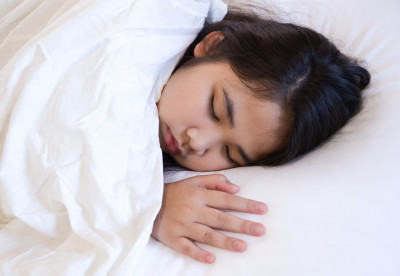I am sure most new parents can attest to the sheer exhaustion of the early weeks and months of having a new baby. One hopes that this fatigue lifts as the baby gets into a routine and starts to sleep through the night. But as your child gets a bit older, what is the right amount of sleep for your child and when should they sleep?
It is worth remembering how we feel, as adults, when we are sleep deprived. Clear headed decisions become more difficult as do problem solving activities. It is a struggle to remain focused and concentrate, especially for longer periods of time and we experience these difficulties as beings much more adept at regulating our behaviour and controlling our impulses and emotions.
Afternoon naps
Afternoon naps are often phased out once children start nursery places or seem to be able to ‘cope’ with a full day without napping. However, recent research suggests that napping could aid children’s learning, even for those who seem to be able to have grown out of it. University of Massachusetts researchers found that when children aged between three and five had a nap after lunch they performed better on visual-spatial tasks not only that afternoon but also the next day. They were also able to recall 10% more information than if they had been kept awake. This suggests that the benefits are far-more long acting than purely refreshing the child for the afternoon ahead but that they are important for memory consolidation and learning. Brain activity was mapped as the children slept and it was noted that there was increased activity in the regions associated with assimilating new information and learning.
Dr Robert Scott-Jupp, of the Royal College of Paediatrics and Child Health, said:
It’s been known for years that having a short sleep can improve the mental performance of adults, for example doctors working night shifts. Up until now, no-one has looked at the same thing in toddlers. This is important, because pre-school nurseries are divided on whether they should allow their children a nap.
Toddlers soak up a huge amount of information everyday as they become increasingly inquisitive about the world around them and begin to gain independence.
It is worth remembering how we feel, as adults, when we are sleep deprived. Clear headed decisions become more difficult as do problem solving activities. It is a struggle to remain focused and concentrate, especially for longer periods of time and we experience these difficulties as beings much more adept at regulating our behaviour and controlling our impulses and emotions.
We now know that a daytime sleep could be as important as a night time one. Without it, they would be tired, grumpy, forgetful and would struggle to concentrate.1
I find this research both timely and interesting as my own anecdotal observations concur with the research. As someone who teaches children aged between two and eleven, I notice a huge difference in concentration, motivation and interaction between scheduled morning and afternoon lessons especially in children aged 2-5.
Regular bedtimes
There has been a spate of recent research into the effect of sleep on children not only on naps but also the effect of regular bed times on behaviour. A study of more than 10,000 children by University College London researchers has shown that those with erratic bedtimes exhibited behavioural and emotional difficulties as well as symptoms of jet lag. At a more extreme level this can undermine brain maturation and disrupt natural body rhythms. However, the study also showed that these symptoms could be reversed with regular bed times.
Professor Yvonne Kelly, from UCL’s department of epidemiology and public health:
Not having fixed bedtimes, accompanied by a constant sense of flux, induces a state of body and mind akin to jet lag and this matters for healthy development and daily functioning … It follows that disruptions to sleep, especially if they occur at key times in development, could have important lifelong impacts on health. What we’ve shown is that these effects build up incrementally over childhood, so that children who always had irregular bedtimes were worse off than those children who did have a regular bedtime at one or two of the ages when they were surveyed.2
Again, as a teacher, there is a clear difference in a child’s capability to learn if they come into school clearly overtired. However, despite the benefits to their wellbeing, many children reject the idea of a full night’s sleep or an afternoon nap. No child is the same and they all have different sleep requirements with their parents best able to judge what their child needs.
Here are a few tips to encourage good sleep routines for children:
- Maintain a consistent and relaxing routine so that children know what to expect at the same time every day.
- Try to avoid overstimulation (such as outdoor play or computer games) in the run up to a nap time or bed time. Instead try calm activities such as a quiet game or reading together.
- Ensure that children sleep in the same place so that they associate that place with calm and sleep and try to ensure that it is quiet, dark and not too hot or cold.
- Encourage children to drop off to sleep by themselves using a soother such as a blanket or a teddy and put them to bed whilst they are drowsy instead of already asleep.
- If children are trying every trick in the book to refuse bedtime, encourage them to stay in bed by promising that you will be back in five minutes, then 10 minutes etc (with a kiss and a cuddle as a reward for them staying quietly in bed). If they do get up, give them no attention other than leading them back to bed.
- If your child is really not going to drop off for a nap, give them a designated quiet time (perhaps use a sand timer so they can see clearly when the time is up) either for quiet play or looking at books in their nap environment.
- Good sleep for children means better sleep for parents and we all know how much better we feel after a good night’s sleep!
How do you get your child to sleep? Please share your top sleep tips with us.
1) http://www.bbc.co.uk/news/health-24202591
2) http://www.theguardian.com/lifeandstyle/2013/oct/14/children-regular-bedtimes-behaviour
Featured image: http://www.freedigitalphotos.net/images/cute-girl-sleeping-on-a-white-bed-photo-p186468



















